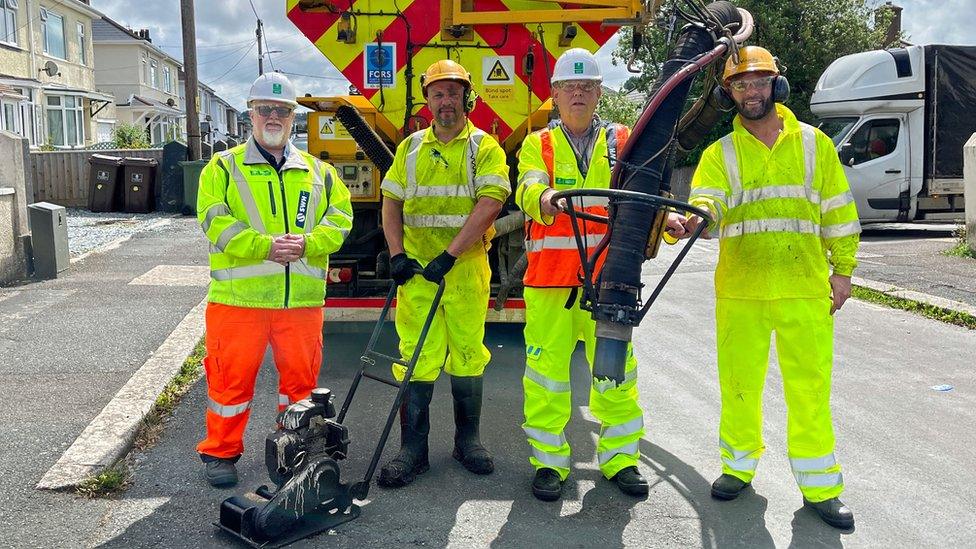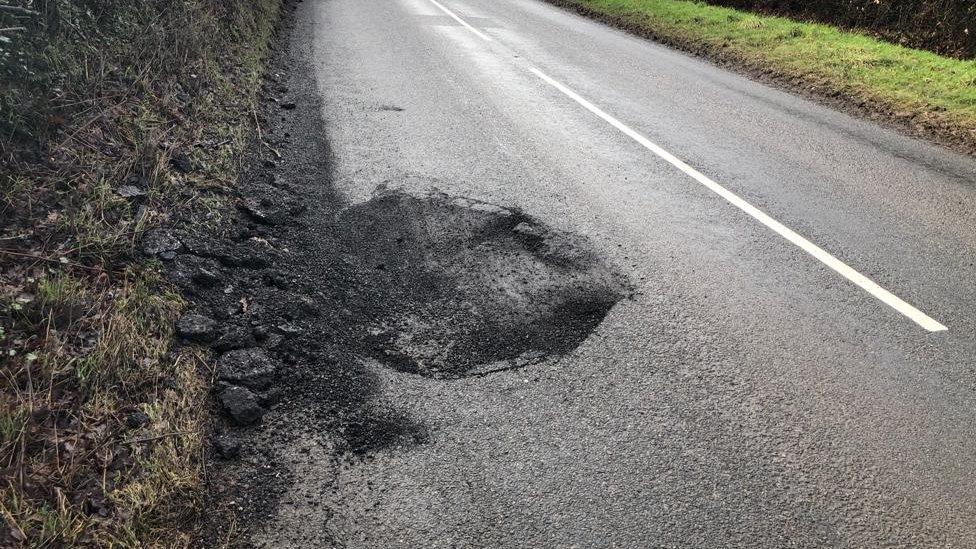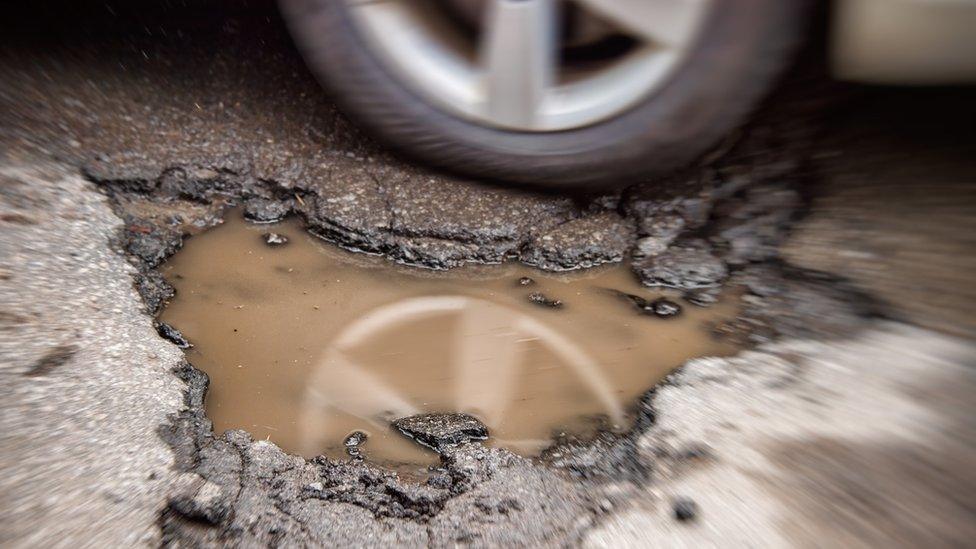New method to fill in Plymouth's potholes trialled
- Published

The new process is called spray injection patching
A trial has started to fill in potholes in Plymouth using a new road patching system.
Plymouth City Council said the new machine could carry out permanent repairs without waste or heat.
The process - called spray injection patching - forces air at high speed into potholes then the area is coated with cold bitumen to create a seal.
Councillor Mark Coker said repairs were "ready to drive on in minutes" and it would "extend the life of our roads".
The trial is set to last for six months, the council said.
Highways inspectors will continue to assess potholes based on the current criteria and other treatments which include micro-asphalt surfacing and surface dressing will continue to be used.
Mr Coker, who is the cabinet member for strategic planning and transport, said: "This new machine means there's no excavation, no waste, often no need for road closures, and repairs are ready to drive on in minutes.
"The repairs cost a third of the price of traditional techniques, and because there's no heat involved, it's also exceptionally low on carbon emissions."
He added: "By focusing more on techniques like spray-injection patching, we can repair more defects and extend the life of our roads with significantly less cost and disruption."

Follow BBC News South West on Twitter, external, Facebook, external and Instagram, external. Send your story ideas to spotlight@bbc.co.uk.
- Published23 January 2023

- Published10 March 2020
